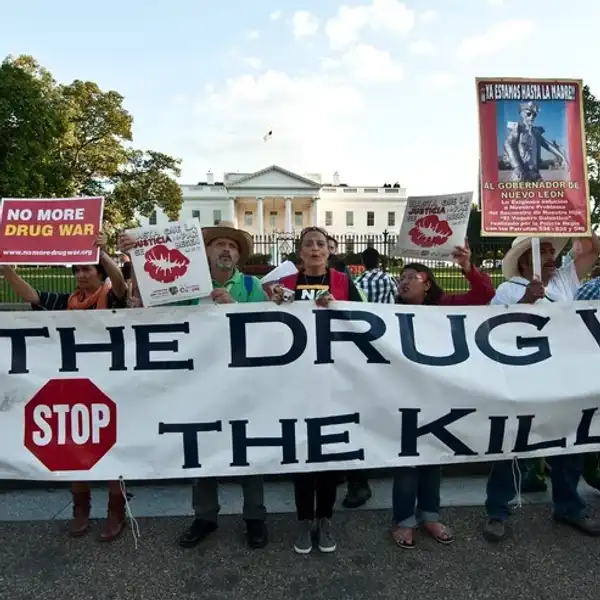The War on Drugs disproportionately represents minorities and people of color in our prison systems with statistics of arrests representing 1 in 3 black men, compared to 1 in 17 white men. Shockingly, today the U.S. holds 25% of the world’s total prison population, while it only makes up about 5% of the world’s population. This 3 strike war is being used as a less obvious way to enforce regulations which allow for the same kinds of prejudices we had 40 years ago. In 1970, the United States prison population was a little over 327,000, while recent 2014 data shows over 2.2 million people behind prison bars. Looking at the upward trends in mass incarceration, it’s clear that the War on Drugs is not winnable, but most of us already know this.
Through chains of corporations, prisons are a profit driven industry. In the documentary, we see prisoners farm potatoes, make Victoria’s Secret bras and, because they are criminals, they are paid less money by corporations. With some prisoners earning 13 cents an hour, it's clear to see how much corporations largely control and exploit the money making industry driven by making the highest profit possible. Even though having that corporate, profit driven focus results mean keeping the jails at full capacity during low crime periods, sometimes having maggots in their food, and further segregating minority groups. The 13th shares real stories of the tragedy mass incarceration can cause for individuals like Kalief Browder. He gets accused of stealing a backpack, spends three years in jail, two in solitary confinement awaiting trial, and commits suicide after being found innocent years later. Similarly wrongly convicted, The Central Park Five rape throws five innocent young black teens in prison, with four being under the age of 18, while Donald Trump publishes an ad which advocates their deserving capital punishment, were each quickly sent to prison for 6 to 11 years simply to lessen the "Animalistic superpredators" public outcry. Years later, DNA evidence finds them all innocent.
But, how can we expect for prisoners to be able to rehabilitate? When prisoners get out, they are sent back to the same environment, given little tools to succeed and do without much guidance to improve their lives in a warfare type battle. Cops parade and patrol poor neighborhoods and we call them thugs, watch them on shows like Cops, claim they commit all the crimes, and send them back to the same place with the same resources. It's almost as if they have no other option except to go back to jail, because, when you're poor and can't afford to recover from a serious drug addiction, like heroin or prescription pills, you probably wouldn't have many other options except to go right back to the drug when given back your free will.




















